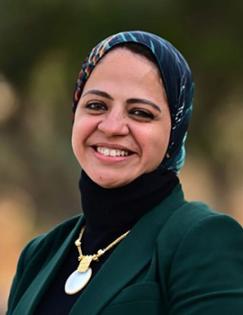Reham Rizk

Director of Egypt Impact Lab, J-PAL Middle East and North Africa
Reham Rizk serves as the Director of the Egypt Impact Lab (EIL), a collaborative initiative between J-PAL Middle East and North Africa and the Ministry of Planning and Economic Development. This innovative partnership aims to strengthen poverty reduction policies by rigorously evaluating promising government programs. In this capacity as the Director of EIL, Rizk assumes a leadership role in steering the Lab's strategic initiatives and ensuring the highest standards of research, policy outreach, and capacity building. Her multifaceted responsibilities include providing both strategic and technical oversight, thereby shaping the trajectory of the Lab's growth and impact
Reham Rizk is the Head of the Modelling and Social Planning and Development Unit at the Egyptian Ministry of Planning and Economic Development. Simultaneously, she holds the position of Associate Professor of Economics at the University of London, representing the European Universities in Egypt, and is actively engaged in the Master’s Program at Paris 1 Panthéon-Sorbonne University. Emphasizing a commitment to evidence-based policy and research, Reham also serves as an Invited Researcher at J-PAL Middle East and North Africa at the American University in Cairo.
Previously, Reham held the position of Associate Professor of Economics at the Universities of Canada in Egypt and the British University in Egypt. She has a rich research background, having been a Research Fellow at the Humphrey School of Public Affairs, University of Minnesota, and the Inter-University Consortium for Political and Social Research, University of Michigan. She has also contributed as a Senior Economist at the Tahya-Misr Fund.
Reham earned her PhD and MA in Economics from Helwan University and focuses her work on establishing sustainable partnerships between universities, government entities, and development practitioners. Her efforts aim to advance policy-driven research and effective planning for development initiatives, with a specific focus on areas such as employment, micro-enterprise development, female empowerment, and family development.